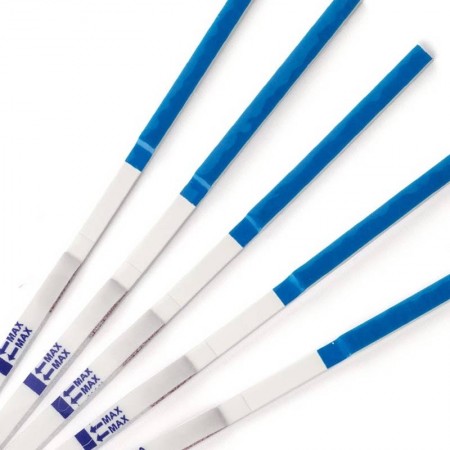A team of scientists in India has developed an inexpensive paper-based test for coronavirus that could give fast results similar to a pregnancy test. The test, named after a famous Indian fictional detective, is based on a gene-editing technology called Crispr. Scientists estimate that the kit - called Feluda - would return results in under an hour and cost 500 rupees.
Feluda will be made by a leading Indian conglomerate, Tata, and could be the world's first paper-based Covid-19 test available in the market. Researchers at the Delhi-based CSIR-Institute of Genomics and Integrative Biology (IGIB), where Feluda was developed, as well as private labs, tried out the test on samples from about 2,000 patients, including ones who had already tested positive for the coronavirus.
They found that the new test had 96% sensitivity and 98% specificity. The accuracy of a test is based on these two proportions. A test that's highly sensitive will detect almost everyone who has the disease; and a test that has high-specificity will correctly rule out almost everyone who doesn't have the disease. The ‘Feluda’ test costs just about Rs 500 while the RT-PCR test now costs anywhere between Rs 1,600 to Rs 2,000. Antibody tests, which can give results in 20-30 minutes, costs between Rs 500 and Rs 600. Meanwhile, a rapid antigen test kit, which interprets a positive or negative test in 30 minutes, costs Rs 450. TruNat test provides results within 60 minutes and a kit comes for about Rs 1,300.
How it work?
The testing process is completed roughly in four steps. Viral RNA is extracted from the nasal and throat swab samples collected from a suspected patient. The viral RNA is converted into DNA using the reverse transcriptase method using a PCR (polymerase chain reaction) machine, which also amplifies the DNA multiple times, making several copies.
The Feluda mix is prepared, containing the Cas9 protein, which can bind to the DNA of the virus. Chemicals are added to the CRISPR complex and to the DNA during amplification process to generate a colorimetric reaction on the paper strip.
In the last step, the paper strip or dipstick is immersed in the Feluda mix. The paper strip generates the test result in the form of two lines for a positive and one line in the case of a negative test, akin to a home pregnancy test. However, this is a nucleic acid test and not a protein based test.
What Is CRISPR?
The Prize in Chemistry went to Emmanuelle Charpentier, Director at the Max Planck Institute for Infection Biology in Berlin, and Jennifer Doudna, a Professor at the University of California, US. The two researchers achieved fame in 2012 when they developed the revolutionary tool CRISPR-Cas9 to make gene editing easier and quicker than ever. Notably, Doudna and Charpentier are just the sixth and seventh women to receive the prestigious Chemistry prize.
Jennifer Doudna have used a CRISPR gene-editing technology to develop a rapid, portable, accurate, and low-cost mobile-based test that can detect the pandemic coronavirus (Sars-CoV2) in five minutes.
CRISPR technology is a simple yet powerful tool for editing genomes. It allows researchers to easily alter DNA sequences and modify gene function. Its many potential applications include correcting genetic defects, treating and preventing the spread of diseases and improving crops. However, its promise also raises ethical concerns.
In popular usage, "CRISPR" (pronounced "crisper") is shorthand for "CRISPR-Cas9." CRISPRs are specialized stretches of DNA. The protein Cas9 (or "CRISPR-associated") is an enzyme that acts like a pair of molecular scissors, capable of cutting strands of DNA.
Source: BBC News, News18, livescience.com, indianexpress
